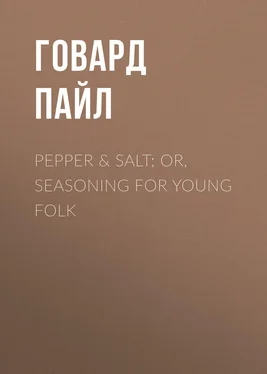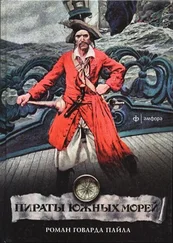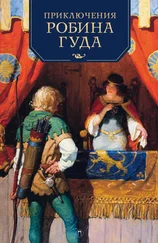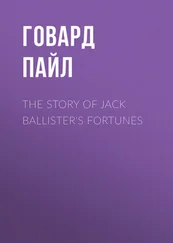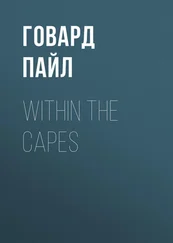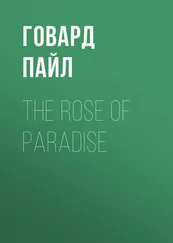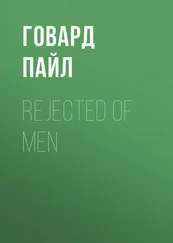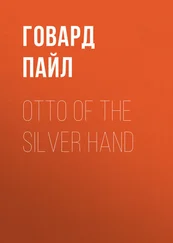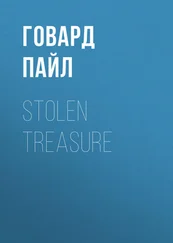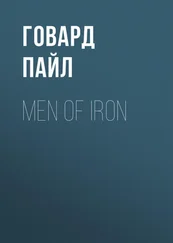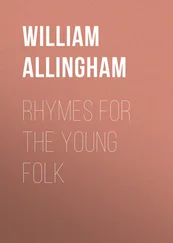Говард Пайл - Pepper & Salt; or, Seasoning for Young Folk
Здесь есть возможность читать онлайн «Говард Пайл - Pepper & Salt; or, Seasoning for Young Folk» — ознакомительный отрывок электронной книги совершенно бесплатно, а после прочтения отрывка купить полную версию. В некоторых случаях можно слушать аудио, скачать через торрент в формате fb2 и присутствует краткое содержание. Жанр: foreign_antique, foreign_prose, foreign_poetry, foreign_children, Сказка, на английском языке. Описание произведения, (предисловие) а так же отзывы посетителей доступны на портале библиотеки ЛибКат.
- Название:Pepper & Salt; or, Seasoning for Young Folk
- Автор:
- Жанр:
- Год:неизвестен
- ISBN:нет данных
- Рейтинг книги:4 / 5. Голосов: 1
-
Избранное:Добавить в избранное
- Отзывы:
-
Ваша оценка:
- 80
- 1
- 2
- 3
- 4
- 5
Pepper & Salt; or, Seasoning for Young Folk: краткое содержание, описание и аннотация
Предлагаем к чтению аннотацию, описание, краткое содержание или предисловие (зависит от того, что написал сам автор книги «Pepper & Salt; or, Seasoning for Young Folk»). Если вы не нашли необходимую информацию о книге — напишите в комментариях, мы постараемся отыскать её.
Pepper & Salt; or, Seasoning for Young Folk — читать онлайн ознакомительный отрывок
Ниже представлен текст книги, разбитый по страницам. Система сохранения места последней прочитанной страницы, позволяет с удобством читать онлайн бесплатно книгу «Pepper & Salt; or, Seasoning for Young Folk», без необходимости каждый раз заново искать на чём Вы остановились. Поставьте закладку, и сможете в любой момент перейти на страницу, на которой закончили чтение.
Интервал:
Закладка:
"I beg your pardon – I didn't quite hear."
(Then louder) "I say is there sheltering near"
But the post was as dumb as Death.
"What can't you answer a question pray
You will not – No – Then I'll say good-day."
And flirting his tail he walked away.
"You'r a fool." (this under his breath.)
The moral that this story traces
Is – Circumstances alter cases.
Ye song of ye foolish old woman
I saw an old woman go up a steep hill,
And she chuckled and laughed, as she went, with a will.
And yet, as she went,
Her body was bent,
With a load as heavy as sins in Lent.
"Oh! why do you chuckle, old woman;" says I,
"As you climb up the hill-side so steep and so high?"
"Because, don't you see,
I'll presently be,
At the top of the hill. He! he!" says she.
I saw the old woman go downward again;
And she easily travelled, with never a pain;
Yet she loudly cried,
And gustily sighed,
And groaned, though the road was level and wide.
"Oh! why, my old woman," says I, "do you weep,
When you laughed, as you climbed up the hill-side so steep?"
"High-ho! I am vexed,
Because I expects,"
Says she, "I shall ache in climbing the next."
A NEWSPAPER PUFF
Twelve geese
In a row
(So these
Always go).
Down-hill
They meander,
Tail to bill;
First the gander.
So they stalked,
Bold as brass
As they walked
To the grass.
Suddenly
Stopped the throng;
Plain to see
Something's wrong
Yes; there is
Something white!
No quiz;
Clear to sight.
('Twill amuse
When you're told
'Twas a news-
Paper old.)
Gander spoke.
Braver bird
Never broke
Egg, I've heard:
"Stand here
Steadily,
Never fear,
Wait for me."
Forth he went,
Cautious, slow,
Body bent,
Head low.
All the rest
Stood fast,
Waiting for
What passed.
Wind came
With a caper,
Caught same
Daily paper.
Up it sailed
In the air;
Courage failed
Then and there.
Scared well
Out of wits;
Nearly fell
Into fits.
Off they sped,
Helter-skelter,
'Till they'd fled
Under shelter.
Poor geese!
Never mind;
Other geese
One can find,
Cut the same
Foolish caper
At empty wind
In a paper.
THREE FORTUNES
A merry young shoemaker,
And a tailor, and a baker,
Went to seek their fortunes, for they had been told,
Where a rainbow touched the ground,
(If it only could be found,)
Was a purse that should be always full of gold.
So they traveled day by day,
In a jolly, jocund way
Till the shoemaker a pretty lass espied;
When quoth he, "It seems to me,
There can never, never be,
Better luck than this in all the world beside."
So the others said good-bye,
And went on, till by-and-by
They espied a shady inn beside the way;
Where the Hostess fair, – a widow —
In a lone seclusion hid; "Oh,
Here is luck!" the tailor said, "and here I'll stay."
So the baker jogged along,
All alone, with ne'er a song,
Or a jest; and nothing tempted him to stay.
But he went from bad to worse,
For he never found the purse,
And for all I know he is wandering to this day.
It is better, on the whole,
For an ordinary soul,
(So I gather from this song I've tried to sing,)
For to take the luck that may
Chance to fall within his way,
Than to toil for an imaginary thing.
Claus and his wonderful stuff
Hans and Claus were born brothers. Hans was the elder and Claus was the younger; Hans was the richer and Claus was the poorer – that is the way that the world goes sometimes.
Everything was easy for Hans at home; he drank much beer, and had sausages and white bread three times a day; but Claus worked and worked, and no luck came of it – that, also, is the way that the world goes sometimes.
One time Claus spoke to Hans of this matter. "See, Hans," said he, "you should give me some money, for that which belongs to one brother should help the other."
But Hans saw through different colored spectacles than Claus. No; he would do nothing of the kind. If Claus wanted money he had better go out into, the world to look for it; for some folks said that money was rolling about in the wide world like peas on a threshing-floor. So said Hans, for Claus was so poor that Hans was ashamed of him, and wanted him to leave home so as to be rid of him for good and all.
This was how Claus came to go out into the world.
But before he went, he cut himself a good stout staff of hazel-wood to help his heavy feet over the road.
Now the staff that Claus had cut was a rod of witch-hazel, which has the power of showing wherever treasure lies buried. But Claus knew no more of that than the chick in the shell.
So off he went into the world, walking along with great contentment, kicking up little clouds of dust at every step, and whistling as gayly as though trouble had never been hatched from mares' eggs. By-and-by he came to the great town, and then he went to the market-place and stood, with many others, with a straw in his mouth – for that meant that he wanted to take service with somebody.
Presently there came along an old, old man, bent almost double with the weight of the years which he carried upon his shoulders. This was a famous doctor of the black-arts. He had read as many as a hundred books, so that he was more learned than any man in all of the world – even the minister of the village. He knew, as well as the birds know when the cherries are ripe, that Claus had a stick of witch-hazel, so he came to the market-place, peering here and peering there, just as honest folks do when they are looking for a servant. After a while he came to where Claus was, and then he stopped in front of him. "Do you want to take service, my friend?" said he.
Yes, that was what Claus wanted; why else should he stand in the market-place with a straw in his mouth?
Well, they bargained and bargained, and talked and talked, and the end of the matter was that Claus agreed to sell his services to the old master of black-arts for seven pennies a week. So they made their bargain, and off went the master with Claus at his heels. After they had come a little distance away from the crowd at the marketplace, the master of black-arts asked Claus where he had got that fine staff of hazel.
"Oh, I got it over yonder," said Claus, pointing with his thumb.
But could he find the place again?
Well, Claus did not know how about that; perhaps he could, and perhaps he could not.
But suppose that Claus had a thaler in his hand, then could he find the place again?
Oh yes; in that case Claus was almost sure that he could find the place again.
So good. Then here was a bottle of yellow water. If Claus would take the bottle of yellow water, and pour it over the stump from which he had cut his staff, there would come seven green snakes out of a hole at the foot of the hazel-bush. After these seven snakes, there would come a white snake, with a golden crown on its head, from out of the same hole. Now if Claus would catch that white snake in the empty bottle, and bring it to the master of black-arts, he should have not one thaler, but two – that was what the master said.
Читать дальшеИнтервал:
Закладка:
Похожие книги на «Pepper & Salt; or, Seasoning for Young Folk»
Представляем Вашему вниманию похожие книги на «Pepper & Salt; or, Seasoning for Young Folk» списком для выбора. Мы отобрали схожую по названию и смыслу литературу в надежде предоставить читателям больше вариантов отыскать новые, интересные, ещё непрочитанные произведения.
Обсуждение, отзывы о книге «Pepper & Salt; or, Seasoning for Young Folk» и просто собственные мнения читателей. Оставьте ваши комментарии, напишите, что Вы думаете о произведении, его смысле или главных героях. Укажите что конкретно понравилось, а что нет, и почему Вы так считаете.
